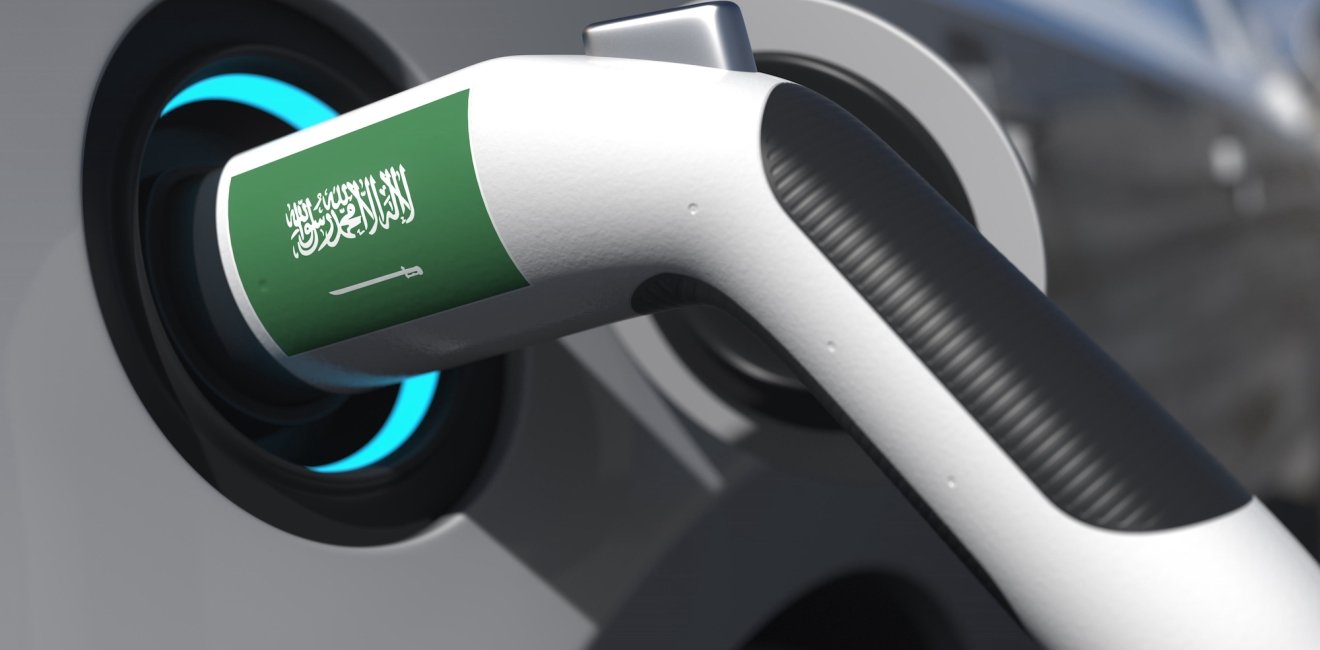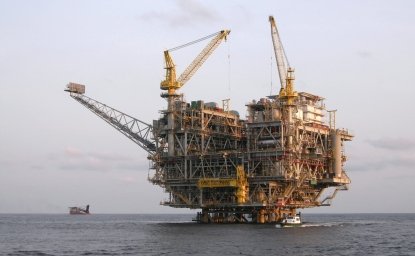In a world moving towards a post-oil future, the oil giants of the Arab Gulf have no less desire to drive the transportation of tomorrow. In November 2022, Saudi Arabia launched Ceer, the country’s first electric vehicle maker.
This followed an announcement of a $6 billion investment in a steel plate mill complex and electric vehicle (EV) battery plant in May, in addition to plans from the US-based EV company Lucid Group to build its first overseas plant in Saudi Arabia in the coming decade.
So why is it that Saudi Arabia is making a bet on batteries? The answer lies in geography and geopolitics.
The transition to electric vehicles
Staring down the imminent threats of climate change, the world is making a transition away from gas-powered cars. The 2021 United Nations Climate Change Conference, also known as COP26, concluded with a declaration that, “Together, we will work towards all sales of new cars and vans being zero emission globally by 2040, and by no later than 2035 in leading markets.”
The sentiment was reinforced this year at COP27... by the Accelerating to Zero Coalition, which committed over 200 state and non-state signatories to the pledge to transition to EVs by 2040.
The sentiment was reinforced this year at COP27, held in Sharm El Sheikh, Egypt, by the Accelerating to Zero Coalition, which committed over 200 state and non-state signatories to the pledge to transition to EVs by 2040. The US Inflation Reduction Act, signed into law this past summer, incentivized the purchase of EVs by greatly expanding tax credits for purchases. These declarations signal a shift away from the fuel burning cars of today towards the electric vehicles of tomorrow.
EV batteries depend on five critical minerals: lithium, cobalt, manganese, nickel, and graphite. These minerals are clustered in just a few regions in the world that do not tend to align with traditional vehicle manufacturing hubs. For example, half of the world’s lithium reserves are believed to be in Chile and half of all cobalt is believed to be in the Democratic Republic of Congo (DRC). Therefore, the world’s manufacturing giants need to be creative to secure the supply of these minerals to maintain their advantage, while states that historically did not have a robust industrial base could leverage their reserves to become the industry leaders.
Efficiently streamlining the supply chain from mineral extraction to vehicle production will enable any state to gain a comparative advantage in the production of EVs. However, integrating this truly global supply chain is a mammoth task that lends itself to just a few actors with the economic resources and geographic profile to bridge the gap from the point of extraction to the motorway.
Saudi Arabia’s position at the crossroads of Africa, Asia, and Europe makes it an axis point to import minerals from mines in Africa, produce batteries or even vehicles domestically, and finally export to international markets – all while maintaining a comparatively low shipping time and cost.
The global race for dominance
Saudi Arabia hopes that the EV market will enable it to sustain the geopolitical prestige it established as a hegemon in the oil market. Crown Prince Mohammed bin Salman sees emerging technologies at the core of his mission to diversify the Kingdom’s economy under the Vision 2030 framework. While the petroleum supply chain is completely insulated within its borders, the same is not true of EV production. Therefore, without the same control of inputs, Saudi Arabia will struggle to maintain the share of power in the EV market that it occupies in the oil industry.
Saudi Arabia has already taken significant steps towards making EVs a centerpiece of its 21st century economic engine. The recent launch of Ceer is projected to inject $8 billion into Saudi Arabia’s GDP by 2034, while fostering a new industrial ecosystem centered on leveraging its geographic supply chain advantages.
This combination of unprecedented access to minerals and production capacity has certainly set China on an early lead for EV market domination.
Despite this, Saudi Arabia can’t claim first mover status in this market: China has already gained a significant foothold in the global EV ecosystem. Five of the world’s top-10 bestselling EV makers are based in the country and the world’s top-two global battery manufacturers are also Chinese. China reached this dominance thanks to its own deposits of rare earth minerals and impressive access to mines abroad. For example, 15 of the 19 cobalt-producing mines in the DRC are controlled by Chinese companies. This combination of unprecedented access to minerals and production capacity has certainly set China on an early lead for EV market domination.
In Germany, nearly a quarter of new vehicles rolling off production lines last July were EVs. This is an increase of roughly 20 percent in just four years and places Germany in second place for global EV production. The country’s auto manufacturers aim to have EVs account for their entire production in the next 10-15 years.
The US, for its part, recognized China’s early moves to build resilient supply chains and bolster domestic manufacturing of EVs. The US lags behind China in access to minerals but hopes that recent subsidies to increase domestic battery production, combined with EV-targeted production and consumption tax incentives in the Inflation Reduction Act, will boost America’s own position in the global EV race.
The Saudi EV debut
Saudi Arabia believes its own advantage lies in access to the economic resources necessary to invest in a robust EV industry and a strong conviction to become integral in the global EV supply chain. While the Kingdom up to this point has been outpaced by China, it predicts high returns on investments in EV battery production.
In May 2022, Saudi Arabia's Ministry of Industry and Mineral Resources announced $6 billion will be allocated to steel mining and EV battery production projects, including building an EV metals plant to attract future investment. According to Industry and Mineral Resources Minister Bandar al-Khorayef, "The investments will continue to position the Kingdom as a mining production and logistics hub for a region that stretches from Africa to Asia, while also supporting the transformation of our mining sector so it can achieve its potential."
This was met in April with a commitment by Saudi Arabia to purchase up to 100,000 EVs over the next ten years from US-based Lucid Group Inc., in which Saudi Arabia's sovereign wealth fund has a majority stake. Lucid Group is in the process of building its first production facility outside the US in Jeddah, where it will have the capacity to manufacture 150,000 vehicles annually. Additionally, Saudi Arabia is looking into economically efficient ways to extract and process lithium from seawater desalination and the brine that accompanies oil. Doing so would allow it to source lithium for EV battery production within its own borders, vastly reducing production costs and transnational supply chain vulnerability.
The Kingdom’s success at achieving its lofty dreams will make it a key player in the global EV market, on a similar footing to its place in today’s oil market.
Saudi Arabia’s strategy of investing in domestic EV manufacturing will allow it to reduce costs and reach European, Indian, and Middle Eastern markets relatively cheaply. The Kingdom’s success at achieving its lofty dreams will make it a key player in the global EV market, on a similar footing to its place in today’s oil market.
The road ahead
Saudi investments in battery production and establishment of its own EV manufacturer mark a recognition of the world’s transition away from gas-powered cars towards an electrified future. As the Kingdom seeks to diversify its economy beyond petroleum, it is developing a renewed competitive advantage in the EV market built on its geography and desire to innovate.
Unlike petroleum, which gave Saudi Arabia sovereign access to resources for decades, the country faces fierce competition from global powers who already lead the world in EV production and control of its inputs. However, in this race for geopolitical relevance in the post-oil era, Saudi Arabia is betting that it will not need the biggest or fastest car to win the race, but simply the resources and conviction to carve out its own lane towards global competitiveness.
The views expressed in these articles are those of the author and do not reflect an official position of the Wilson Center.






